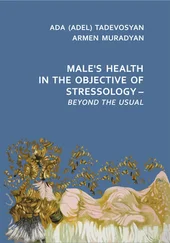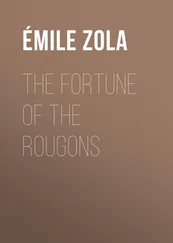Today more than other days, Nora felt the need to control herself with a disciplined severity.
She lifted the receiver and dialled the number of the school. It was still a few minutes before the ten o’clock recess so she didn’t risk calling the principal. As it happened, the secretary answered. Nora told her that she might arrive at school late (a migraine, a cousin who was ill…) and asked her to take care of grades Four-B and Eight and ensure that they were quiet. The secretary, however, reminded her that it was Tuesday, that the Christmas holidays began in two days’ time, that it wasn’t certain whether she would have any more courses, and that her absence would make the principal furious. She advised her, at the very least, not to miss her last class.
“Yes, you may be right. I’m going to try to arrive for the fourth hour. Tell the Grade Eight girls to work quietly. I’ll go to see them during the last recess to give them their assignments for the holidays.”
She hung up the phone and stood there, distracted. She was missing school for the first time since the beginning of the year and this increased her feeling of uneasiness, not so much out of a sense of rectitude as because the loss of old habits troubled her. She looked down at the unfamiliar dressing gown she was wearing. It was blue with small white polka dots, sleeves that were too long for her, ragged lapels, and a small pocket over the left breast. At the same time, she saw the Grade Eight class where she was expected: the girls in their black pinafores seating themselves with delicate gestures in front of their books, dictionaries and notebooks with red ruler-straight margins, and casting restless glances in the direction of the door through which they awaited the entrance, from one moment to the next, of “Miss French Teacher.”
It seemed to Nora that she herself was waiting fearfully for this apparition, the young teacher who was meant to enter the classroom in that moment, from whom this Nora who had woken up in a strange man’s apartment was impossibly distant. What could she have said to her? How could she have explained it to her?
Yesterday at this time…
Yesterday at this time she was a calm young woman who went to the school every morning, ate lunch every day at a cheap diner on Strada Câmpineanu (amid the uncaring faces of civil servants reading the afternoon papers…), who in the afternoon taught French classes in a private language school and who came home, carrying in her handbag the food for her supper, or, sometimes, a bundle of essays that she enjoyed reading because she recognized each pupil’s handwriting, their laboured sentences and never-changing spelling mistakes.
She felt at home in the apartment on Bulevardul Dacia, in that white sixth-floor room furnished with things she had chosen and bought with the patience of heroic savings. It was true that there was also the money sent by her mother, who was living in Cernăuţi with her second husband, a banker. From time to time her mother sent her listless postcards, or, at Easter or Christmas, small sums of money; but the belongings for which Nora felt more affection were those purchased with her teacher’s wages, her overtime, her exam-marking fees. Above all, she liked the shaded lamp beneath which she took refuge in the evenings to read, a lamp with a tall stand like a small indoor version of street lamp, which cast a white circle of light and left the rest of the apartment in protective shadow.
Only on Thursday evenings did she sometimes go to the Philharmonic orchestra, especially when a famous soloist was playing, or when there was a lot of Beethoven on the program. From her girlhood memories in a family in which at that time children were taught to play the piano, she preserved an optimistic respect for long symphonies in three or five movements. She bought herself a ticket in advance, waiting at Feder’s music store for the ticket office to open in case the tickets in the third-level stalls, the only ones she dared to buy, somehow sold out — not without wondering twice which expenses she would have to cut from the week’s budget in order to cover the money she spent on the concert. And then there were evenings when Grig came with her. They were less and less frequent in recent times, without what was known as a “breakup” (a word which frightened Nora, like all words which allowed for no return) having intervened between them.
He waited for her without impatience, he received her visits, some of them after long absences, without surprise; but between them there were too many shared habits and a sensual accord too long established for her unexpected returns not to please him.
“You’re like a married lover; you’re doomed to be a wife,” Grig joked at times, knowing that there was no risk of her taking him seriously. The question had been decided for good between them in the early days of their liaison. One day, cautiously and remarkably vaguely, he asked her if she would like to be a spouse. Nora, looking him in the eyes, gave him the only reply he expected, a simple and irrevocable, “No, never.”
Yet in the mornings when, going out to school, she left him sleeping, she was happy that, glancing back at him from the doorway, she could tell herself: Well, I’m not an old maid . This was the only fate that scared her in her life as a single woman. Otherwise days, evenings, nights passed calmly and unchangingly among familiar things. Only occasionally, looking out her sixth-floor window, crying serenely and then hastily wiping away these unexpected tears, did she reprimand herself as she would have reprimanded a pupil: What’s going on, Nora? Aren’t you ashamed?
She told herself that some day something would happen to change all this and set her off on the road to a new life. She didn’t know what it would be: a letter, a meeting, some piece of news; but for the time being she was happy to be able to postpone this change for as long as possible and put off these expectations for an uncertain future. She continued her life among familiar things that made her feel protected.
A new life! The word had a certain magic.
But, if in order to attain that new life it had been necessary only to say a word or extend her hand, it was possible that she would not have done it.
“And yet here I am,” she said to herself. Here in the apartment of a man she didn’t know.
The clothes he had been wearing yesterday evening were tossed over a chair, while alongside them, laid out with an exaggerated sense of order, were her things: dress, girdle, shoes. The green tie had fallen onto the carpet. Nora recognized it. It was the only thing she did recognize. Otherwise everything was strange: the desk, the books, the paintings, the small objects, all flung together in a disorder that breathed haste and indifference. Nora stared at them and wondered about them all.
She knew so little about the man who, taking off after a night of love, had left behind him seventeen words written on a scrap of paper! And she herself, she realized, had remained a stranger to him. She felt in her being so many words that had not been spoken, so many resistances that had not yielded…
On his desk was a lawyer’s agenda, a piece of cardboard on which telephone numbers were written and a photograph of a young girl. Nora looked at her for a while. She was blonde and wore a black long-sleeved pullover with an initial high up on the left side like a tiny pocket: an oblique, printed A .
PAUL HAD TRIED MANY TIMES TO REMEMBER the circumstances in which he had met Anna. He would have liked to be able to relive the exact moment in which someone had put them face to face, asking them, as one usually does: “What? You don’t know each other?” But his memory had not retained this moment, and it was possible that events had not occurred in this way. Anna was lost in the multitude of hazy faces that he had met “on the street,” “in a train,” “in Sinaia,” 4vague formulas that covered with a mist of uncertainty the initial handshake, the first exchange of words.
Читать дальше












